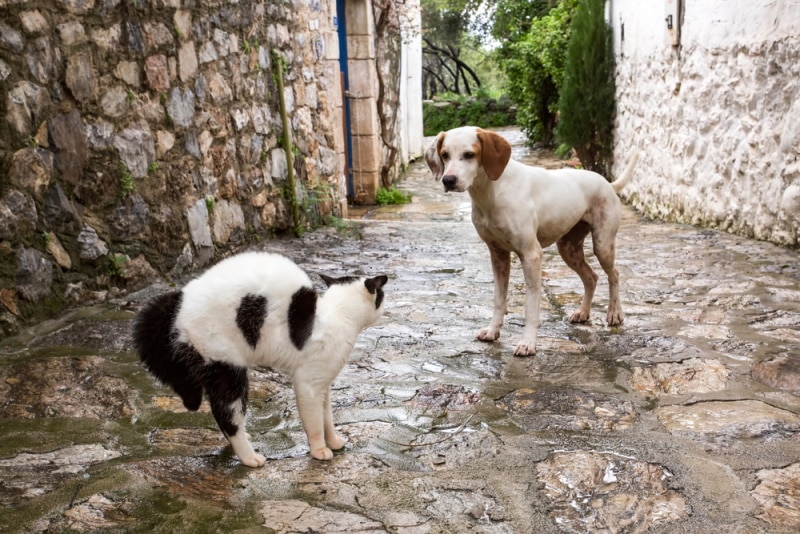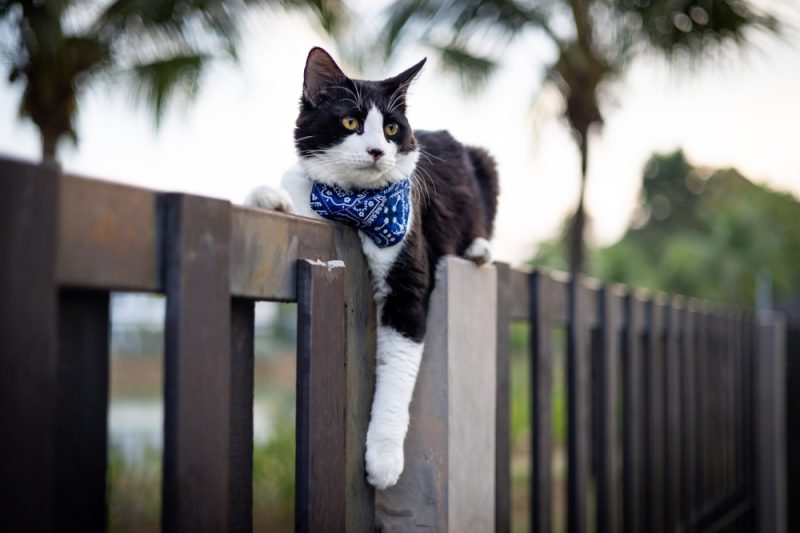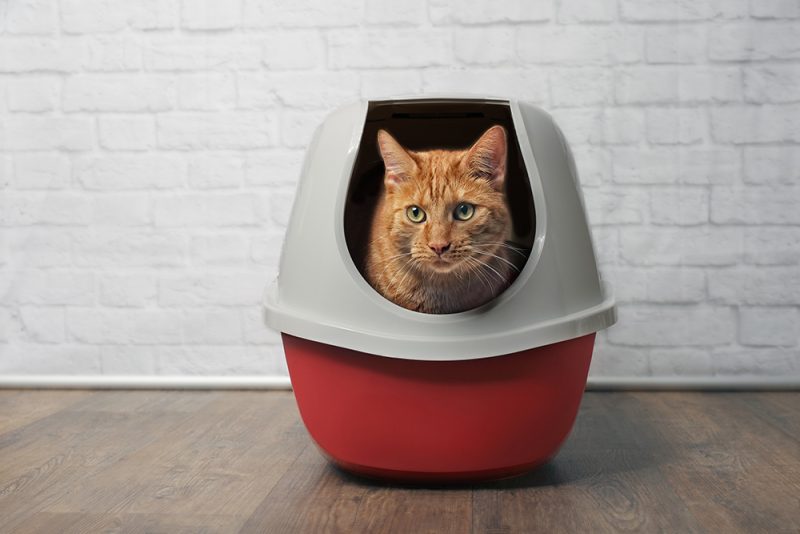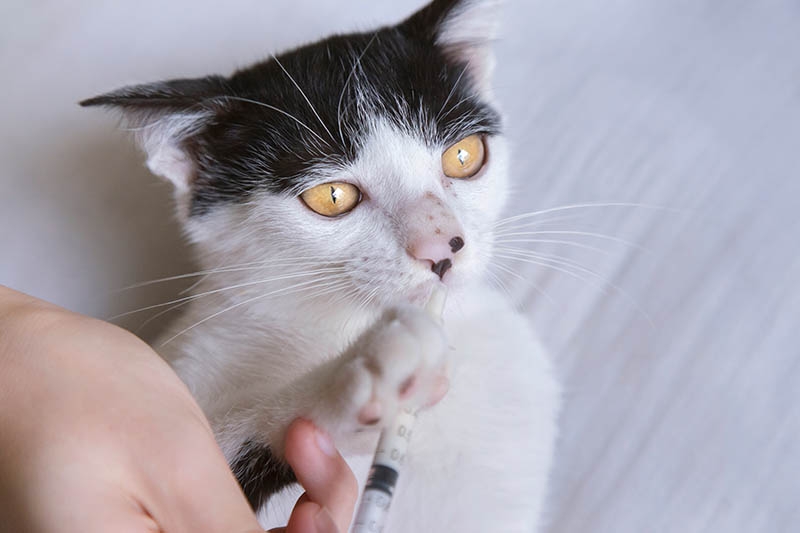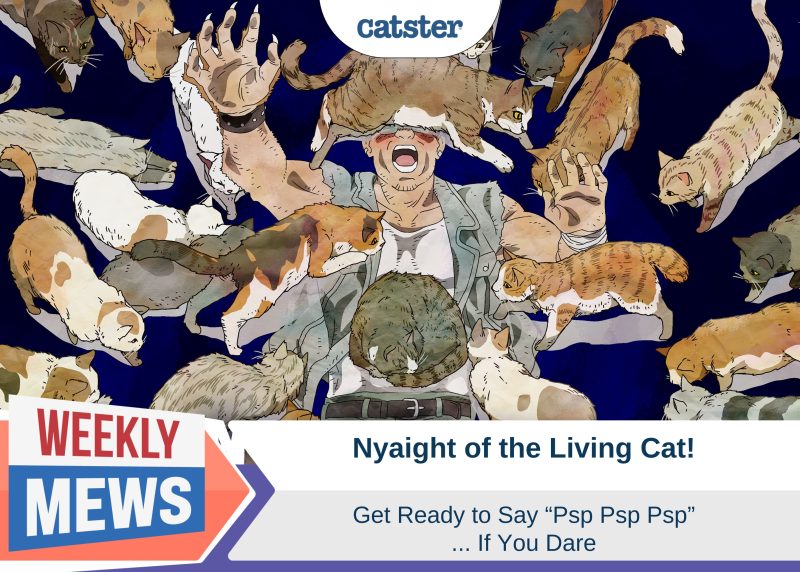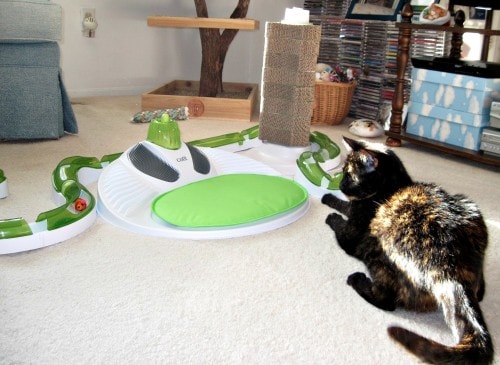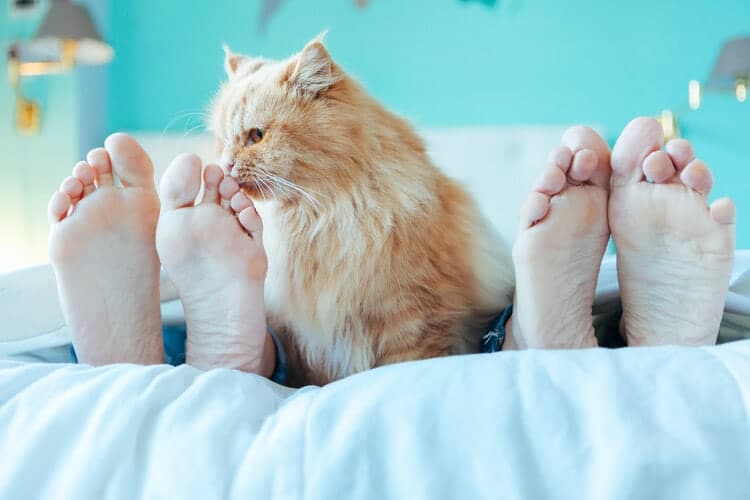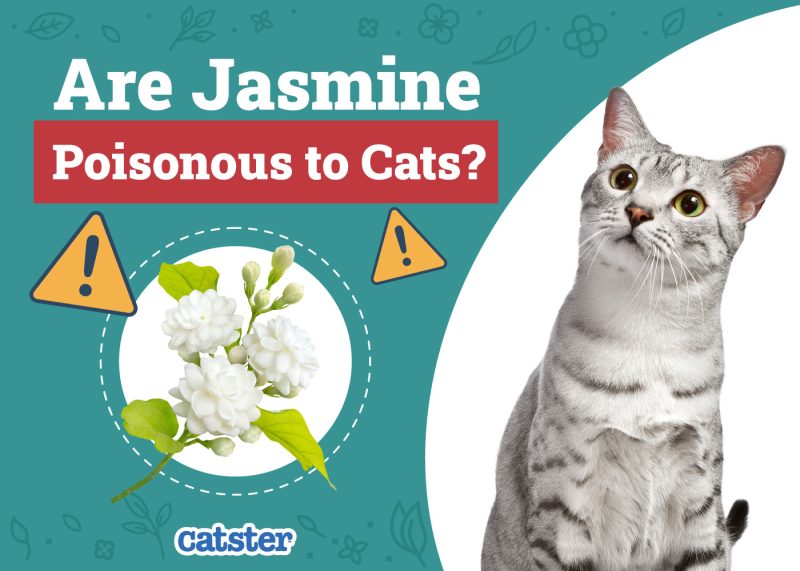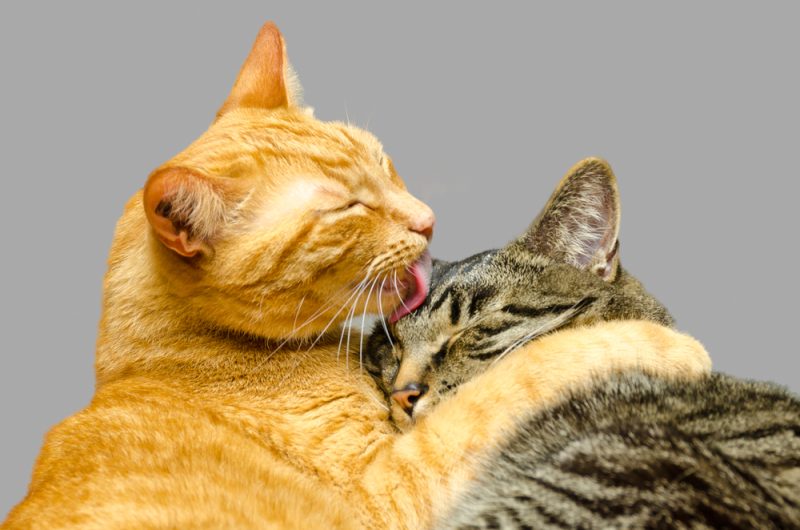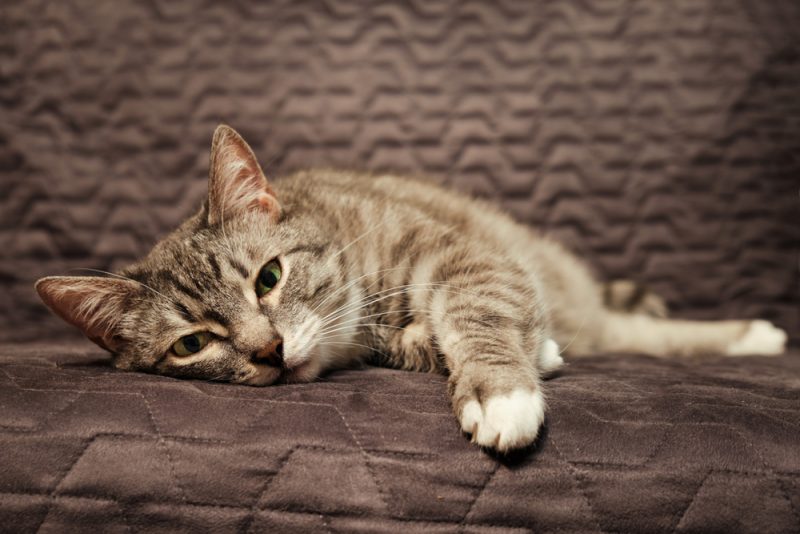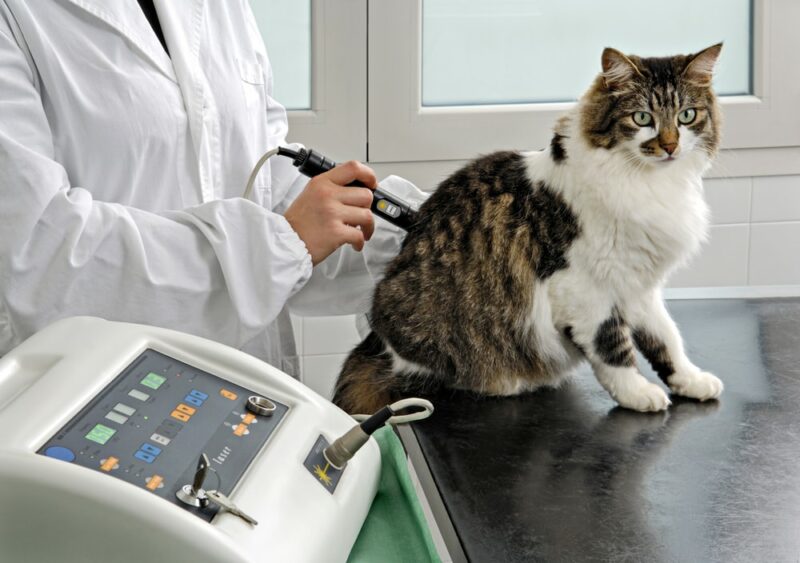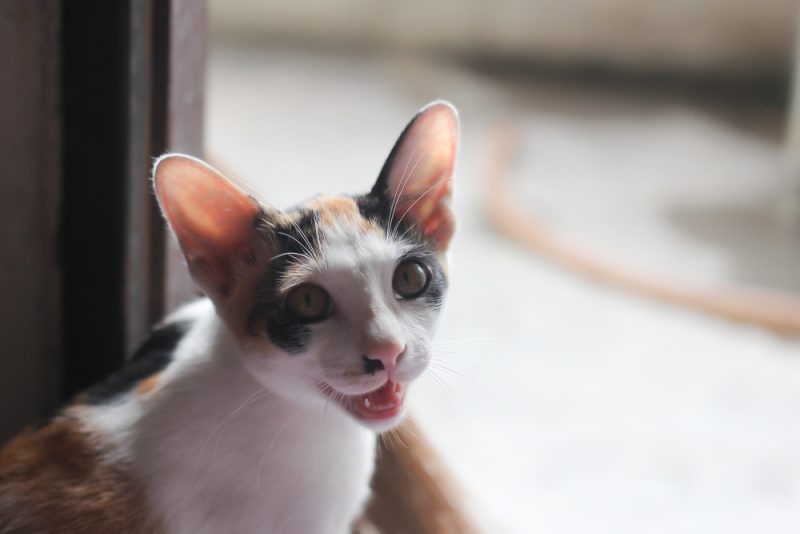In this article
If you have a feral cat population in your neighborhood (which is quite likely, as feral cats are prevalent in many areas) and own a dog, you may have wondered how safe it is for your dog to be around the cats. Other than the chance of your dog and a feral cat getting into a fight, do ferals pose risks to your pet? For example, can feral cats spread disease to dogs?
The answer is yes; certain diseases can spread from cats to dogs (cross-species transmission is rare but possible). Most are not that severe, but there are a few in particular that you should be wary of your dog getting, as they can be serious.
Here’s a closer look at them, along with everything else that you need to know.

The Difference Between Feral and Stray Cats
If you have cats without a home roaming your neighborhood, you might assume they are all feral, but some of these kitties might actually be strays. What’s the difference?
Feral felines are cats that have never lived with humans; they were born in the wild. This means they aren’t big on interactions with people and are more than happy to be wild and free. These are the cats that might run away from you if they meet you (or get defensive instead).
Stray cats are kitties that once had a home with people but got lost or abandoned. While these felines might end up adopting behaviors from feral cats, they are more likely to be friendly with humans.
 What Diseases Can Dogs Get From Feral Cats?
What Diseases Can Dogs Get From Feral Cats?
If your dog has been around feral cats, you’ll need to watch for signs of these possible diseases.
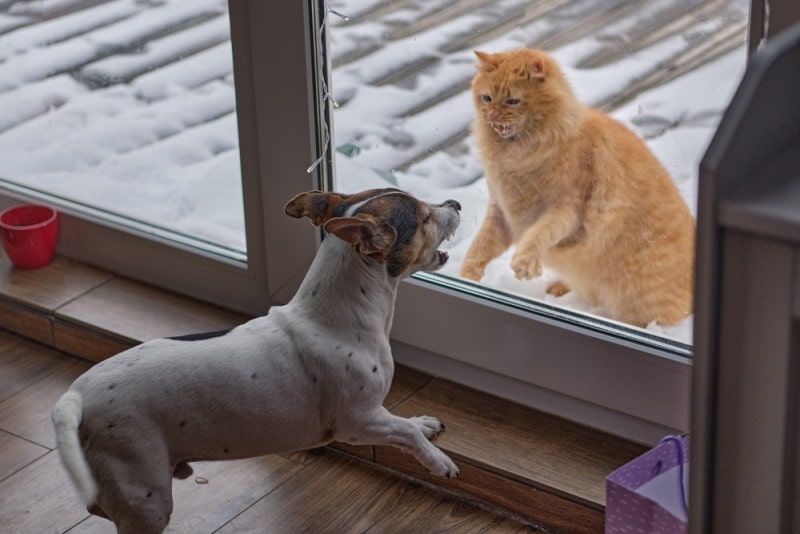
Rabies
Rabies is a big fear for many dog owners, and unfortunately, it can be passed from a feral cat to your dog. Typically, this disease is spread via a bite from an infected cat, which is a significant reason you don’t want your dog getting into fights with feral kitties! However, it can also be transmitted through saliva—so if your dog has an open cut and an infected cat licks it, rabies could be passed on. Since rabies is almost always fatal, the thought of your dog getting it is terrifying.
How can you tell if your pet has been infected with rabies? You’ll see several signs, such as excessive drooling, aggression, a staggering walk, difficulty swallowing, paralysis, and seizures.
This is one of the many reasons that rabies vaccination is recommended for your dog in countries where rabies is endemic. It is often, in fact, a legal requirement.
Toxoplasmosis
If you’ve lived with cats or have ever been pregnant, you’re probably familiar with toxoplasmosis. If not, this is a disease caused by Toxoplasma gondii, a parasite for which felines are the primary hosts. However, this parasite can and will invade any warm-blooded animals, so it can be transmitted to canines via feces. If a dog eats the feces of an infected cat, they can also become infected.
What happens if your dog becomes infected? Your pup could experience diarrhea, fever, inflammation in the eye, coughing, loss of appetite, jaundice, tremors or seizures, or paralysis. The good news is that if your dog is a healthy adult, their immune system should be able to handle the parasite and prevent infection from spreading. But dogs with weakened immunity (puppies, seniors, or dogs with illnesses) won’t be so lucky. If you see any signs of toxoplasmosis, get your pet to the vet right away for treatment!
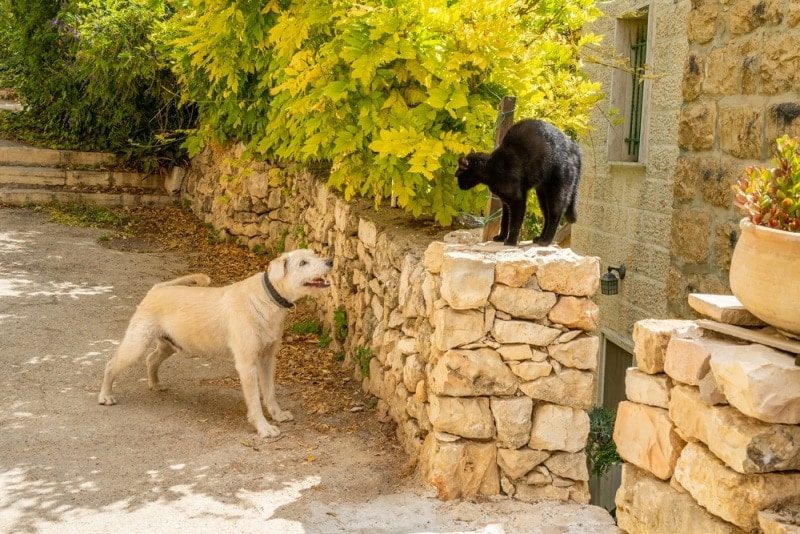
Bordetella Bronchiseptica
You may know this disease by its more common name: kennel cough. Much like the common human cold, this can spread easily, even from one species to the other. Kennel cough tends to be worse in dogs than cats, so you want to keep your dog far away from any feral cat that shows signs of having this.
Kennel cough signs include coughing (that will usually sound like honking), sneezing, fever, tiredness, and loss of appetite. Luckily, this disease is easy to treat, so get your pup to the vet when you see signs of it! You might also want to ensure your dog has had the vaccine for Bordetella bacterium to reduce the chances of kennel cough occurring.
Parasites
Probably the most common thing to be passed among cats and dogs are parasites, particularly intestinal ones. These include tapeworms, roundworms, and hookworms, which are transmitted when a dog ingests a feral cat’s feces. Intestinal parasites tend to be more damaging to puppies, as they can lead to anemia or poor growth, but they can affect adult dogs too. Depending on the type of worm that has invaded, you’ll see different signs, so you’ll want to visit your vet for a diagnosis and treatment.
There’s also ringworm, which isn’t actually a worm, but rather a fungal infection. This can occur in your dog if they come into contact with a feral cat or simply nose around in soil where an infected cat was. This can be identified by scaly patches of missing hair on your pup. This can pass on to people too, so you’ll want to have your pet treated for it!
Let’s not forget about fleas! Did you know that the most common species of fleas found on dogs is actually the cat flea? If there are stray and feral kitties around your home, you can guarantee they’ve brought these pesky little hitchhikers with them, so keeping your dog up to date with flea prevention is the best defense.
 How to Keep Feral Cats Out of Your Yard
How to Keep Feral Cats Out of Your Yard
The best way to keep your canine safe from diseases transmitted by feral cats is to keep the animals away from each other. But feral cats sometimes have a tendency to wander into your yard or get into your garbage cans, so how can you remedy that? Here are a few handy tips!
- Install motion-activated products that emit an ultrasonic sound when triggered. These can easily startle cats into leaving your yard alone. However, feral kitties will eventually learn the specific areas these devices are in and begin to avoid them, so move the devices into different places every so often.
- Utilize motion-activated sprinklers. If there’s one thing the majority of cats hate, it’s getting wet, so using sprinklers to get rid of feral cats is a simple way to convey the message that your yard should be avoided.
- If feral cats are getting into your garden, try adding a few plants that felines hate, such as the “scaredy cat plant” (a.k.a. Coleus canina). You can also try sprinkling coffee grounds around, as many people swear these are excellent deterrents.
- If there are bird feeders in your yard, move those to a location that’s difficult for kitties to reach.
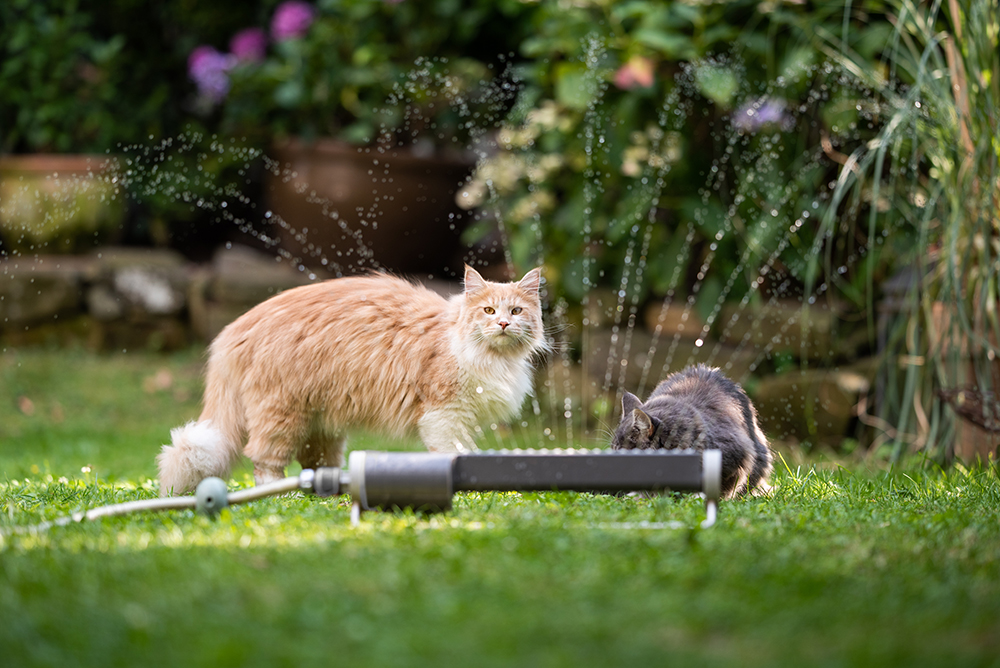

Final Thoughts
Dogs can get diseases from feral felines, so it’s important to keep your dog separated from any roaming around your neighborhood. Otherwise, you run the risk of your pet getting rabies, kennel cough, parasites, and more. Luckily, you can make it less likely for feral cats to enter your space by placing a few simple deterrents, which will keep your pup safe!
Featured Image Credit; Esin Deniz, Shutterstock
